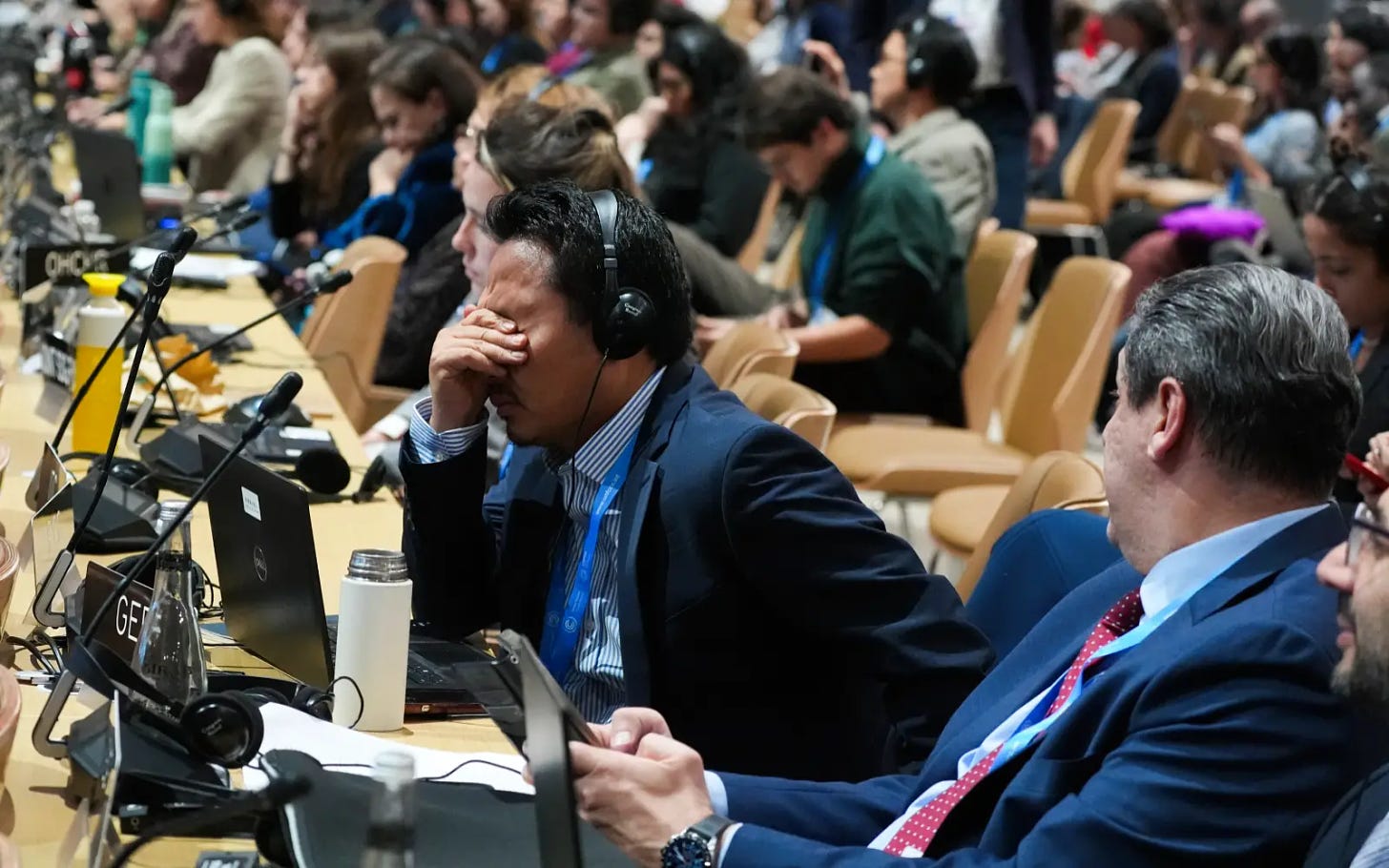Week 47: Money & Oil Olympic Games in Baku
Dear all,
I don’t want to write about COP 29 in Azerbaijan. There’s nothing to be said about the outcome. We can play the “billion here and there” game. Let’s agree that the rich will pay the poor for the damage caused—at least on paper—amounting to $300 billion a year.
It’s like a game of Monopoly: paper money, you buy, you sell, you block, you outmaneuver your opponent. And when the Olympic Games—two weeks of so-called COP 29 negotiations—are over, you pack up the dice, cards, and paper money into the box, and life moves on.
How do you negotiate with a brick wall? In a country where you can literally take an oil bath—I saw it myself back in 2000 in Baku—where, according to Azeri national health authorities, you can not only improve your skin but also supposedly cure all kinds of diseases, including boosting sexual libido.
You immerse yourself in a bathtub, smothered in a brownish, oily paste, and close your eyes to “indulge” in the smell of oil. Afterwards, the person in charge of your treatment scrapes away the oil while muttering about low wages and joint pain. An unforgettable oil experience, I promise.
During these Money & Climate Olympic Games, various reports and insights are released. Organizations around the world compete for the spotlight and attention with numbers, statistics, references, and warnings. It’s a circus of sorts, complete with clowns in funny hats and tricks in all forms and shapes.
One of these reports, though it hasn’t received as much attention as it should, focuses on taxing the rich. You can find it here: Scaling Solidarity: Progress on Global Solidarity Levies.
The final “funny money” number agreed upon in Baku is $300 billion a year. For comparison, consider the surge in deep-sea oil drilling. Oil companies are expected to pour almost $104 billion into this area this year, according to Rystad’s estimates—an increase of almost 50% since 2020 and the highest level since 2016. By 2027, that figure is projected to rise to nearly $140 billion.
Of course, this is not “funny money.”
Keep reading with a 7-day free trial
Subscribe to ESG on a Sunday to keep reading this post and get 7 days of free access to the full post archives.



